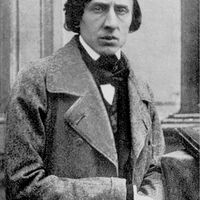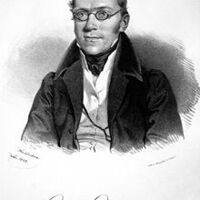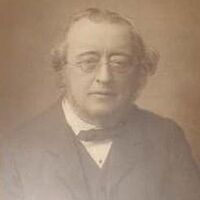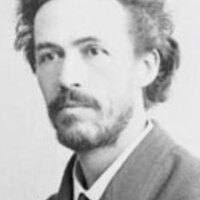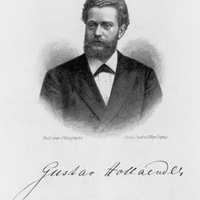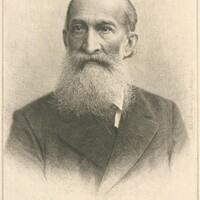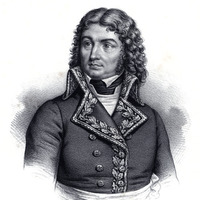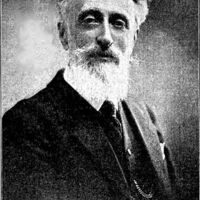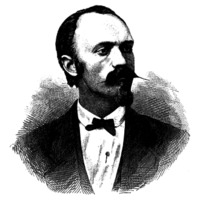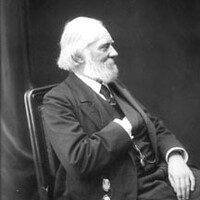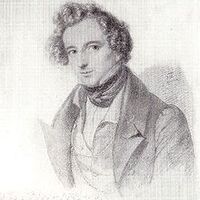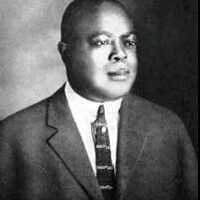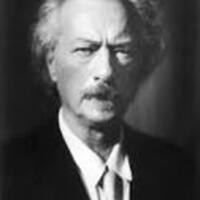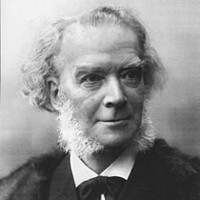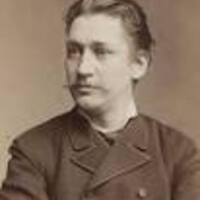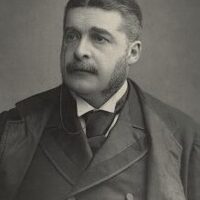Music
A
B
Bach, Johann Sebastian (1685 – 1750), German composer and musician of the Baroque period.
Bartlett, H. N.
- Harlequin
Beethoven, Ludwig van (1770 – 1827), was a German composer and pianist.
C
Chaminde
- Pierette
- 11th Etude Op 40
Chopin, Frédéric François (1810 – 1849), was a Polish composer and virtuoso pianist of the Romantic era who wrote primarily for solo piano.
- Rondo for Two Pianos was composed in 1828.
- 19th Etude
- 24th Etude
- Valse Op 64. No. 2 in c sharp minor
- Valse in G flat major
Clary, Mary Louise, was a contralto in the Redpath Grand Concert Company. She was considered one of America’s greatest contraltos.
Czerny, Carl (1791 – 1857), was born into a muscial Czech family. He is recognized as an Austrian composer, teacher, and pianist, best known for his pedagogical works, particularly studies for the piano are still used today. He was a pupil of Beethoven. Read more.
- 6th Etude of Op 740
- 7th Etude Op 749
- Six Octave Studies Op 553
D
DePachman, Vladimir (1848-1933), was a pianist. Performed at the Grand Opera House
E
Ehlert.
F
G
Gaul, Alfred R (1837 — 1913), was an English composer, conductor and organist. His choral music, The Holy City, premiered at the Birmingham Music Festival in 1882.
- The Holy City Sacred Cantata was first performed at the Birmingham Music Festival in 1882.
Godard, Benjamin Louis Paul (1849 - 1895 ), was a French violinist and Romantic-era composer. He was of Jewish heritage. He composed composed eight operas, five symphonies, two piano and two violin concertos, string quartets, sonatas for violin and piano, piano pieces and etudes, and more than a hundred songs.
- Au Matin
- Gigue - sheet music.
- Valse Serenade Op 71
- Valse Chromatique
Godard, Charles (1837-1898), pseudonym of Franz Behr. He was a prolific but minor German composer of salon music for piano and songs. He is is best known for the polka.
Gounod, Charles
- Faust is an opera in five acts by Charles Gounod to a French libretto by Jules Barbier and Michel Carré from Carré's play Faust et Marguerite ----find more
Grieg
- 2nd Poetic Tonepicture
- 6 Poetic Tone Pictures Op 3
- Poetische Tonbilder
- I Love Thee
Grünfeld, Alfred (1852 – 1924), was an Austrian pianist and composer.
- Romance Op 42. No 1, first published in 1893
H
Handel, George Frideric (),
- As Pants the Hart is an anthem composed by George Frideric Handel for the Chapel Royal of Queen Anne. The anthem was revised five times (indicated by the letters a to e), the first was completed in 1713, and the final in 1738
- Hallelujah Chorus
Haydn, (Franz) Joseph (1732 – 1809), was an Austrian composer of the Classical period. He was instrumental in the development of chamber music such as the piano trio.
Hoffman, Charles
- Ben-Hur Waltzes
Hollaender, Gustav (1855 - 1915), was a German violinist, conductor and composer. He was the newphew of the more famous film composer Friedrich Hollaender.
I
J
Jadassohn, Salomon (1831 – 1902), was a German pianist, composer and a renowned teacher of piano and composition at the Leipzig Conservatory.
- Bal Masque Op 26
- Bolero
- Chaconne
Joubert-Barthélemy, Catherine
K
Kipling
- Recesional
Kullak, Theodor (1818 – 1882), was a German pianist, composer, and teacher.
- Octave Studies
- "The School of Octave-playing: Supplement to the Method of Modern Pianoforte Playing, Volume 2" (1898).
L
Lack, Theodore (1846 – 1921), was a French pianist and composer.
- Valse Arabasque, c. 1893.
Lavallée, Calixa (1842 - 1891), was a French-Canadian-American musician and Lieutenant in the 4th Rhoda island Volunteers and Union Army band musician during the American Civil War. He is best known for composing the music for "O Canada".
Lehmann Liza "In a Persian Garden".
Leschetizky, Theodor (1830 – 1915), was a Polish pianist, professor and composer born in Łańcut, in the kingdom of Galicia and Lodomeria, also known as Austrian Poland, a crownland of the Habsburg Monarchy.
- Ich liebe dich
- Tarantelle
- Two Larks (Les Doux Alouettes)
- Valse Chromatique, published in 1896, Op. 22 for waltz for piano
Liszt
- Rhapsody No.12
- Spring
Loraine, William
- Salome
M
Mendelssohn, Bartholdy (1809 – 1847), is most known as Felix Mendelssohn. He was a German composer, pianist, organist and conductor of the early Romantic period.
- Cradle Song is part of Songs Without Words (Op. 67: No. 6 in E Major). It is part of a collection of 48 songs written for solo piano by the composer between 1829 and 1845.
- Funeral March No. 27 in Songs without Words
- Frühlingslied
- Symphony No. 3 in A minor, Op 56 is also known as the Scottish, was composed between 1829 and 1842.
Mozart, Wolfgang Amadeus (1756 – 1791), was born in Salzburg Germany. As a child he showed prodigious ability. He was a prolific and influential composer of the classical era.
N
O
Oliver, Joe "King" (1881 – 1938), was an American jazz cornet player, composer and bandleader. He had a unique playing style and pioneered the use of mutes in jazz. He was the mentor and teacher of Louis Armstrong. Read more.
- Morsica, possible publication date 1883.
P
Paderewski, Ignacy Jan (1860 – 1941), was a Polish pianist and composer, politician, statesman and spokesman for Polish independence.
Q
R
Reinecke, Carl Heinrich Carsten (1824 – 1910), was a German composer, conductor, and pianist.
- Improvisata [Improvisata uber eine Gavotte von Christoph Willibald Gluck, Op.125]
- Fantasiestück Op 7
S
Scharwenka, Ludwig Philipp (1847 - 1917), was a German composer and teacher of music of Bohemian-Polish descent. He was the older brother of Xaver Scharwenka (1850 – 1924) was a German pianist, composer and teacher.
- Moment Musical published in 1877.
Schumann, Robert (1810 – 1856), was a German composer of the Romantic era, pianist, and influential music critic.
- Allegro from Faschingsschwank (Carnival scenes in Viena).
- Fantasiestücke, Op. 12, is a set of eight pieces for piano, written in 1837.
Schubert, Franz (1797 – 1828), was an Austrian composer of the late Classical and early Romantic eras.
Schytte, Ludvig (1848 - 1909), born in Denmark, he composed two Operas (Hero, 1898 and Der Mameluk, 1903) and a Piano Concerto. In addition to being a composere he was also a pianist and and music teacher. In his early years he travelled to Germany to study with Franz Liszt.
Strelezki, Anton (1859 -1907), was an English composer.
- Premiere Mazurka (title appears as only Mazurka)
Suckert, Emma
- Pickaninny Shuffle 1896, Ragtime piano
Sullivan, Sir Arthur Seymour (Royal Victoria Order) (1842 – 1900), was an English composer. His achievements include 14 operatic collaborations, 24 operas, 11 major orchestral works, ten choral works and oratorios, two ballets, incidental music to several plays, and numerous church pieces, songs, and piano and chamber pieces.
- Light of the World is an oratorio was composed in 1873. His second oratorio, the libretto was written with the assistance of George Grove. It is based on the New Testament. The work was first performed at the Birmingham Festival on 27 August 1873.
T
U
V
Verdi, Giuseppe
W
Wagner, Wilhelm Richard (1813 – 1883), was a German composer, theatre director, polemicist, and conductor. He is most noted for his operas.
- Introduction from Lohengrin
- Tannhauser Marchis an opera in three acts written in 1845.
Wrangell, Basile [Vasily Vrangel]
- Valse or "Petite Valse"
